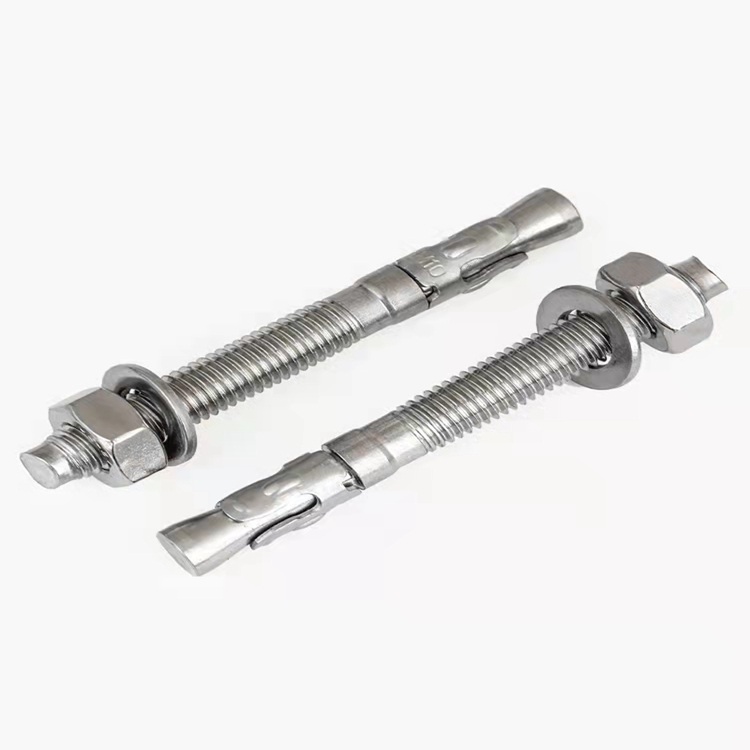Innovative Design Features of Hollow Hex Stud Bolts for Enhanced Structural Integrity and Performance
Aug . 12, 2024 22:52 Back to list
Innovative Design Features of Hollow Hex Stud Bolts for Enhanced Structural Integrity and Performance
The Importance of Famous Hollow Hex Stud Bolts in Modern Engineering
In the realm of mechanical engineering and construction, bolts play an instrumental role in ensuring structural integrity and durability. Among the myriad of fasteners available, the famous hollow hex stud bolt stands out due to its unique design and functional advantages. This article delves into the significance of hollow hex stud bolts, exploring their applications, benefits, and why they have garnered fame in the industry.
Understanding Hollow Hex Stud Bolts
A hollow hex stud bolt is characterized by its hexagonal head and a hollow shaft, which differentiates it from traditional solid stud bolts. The hexagonal shape allows for easy engagement with standard tools, facilitating installation and removal. The hollow design reduces the weight of the bolt while maintaining a high tensile strength, making it ideal for various applications where weight-saving is crucial without compromising load-bearing capacity.
Applications in Various Industries
Hollow hex stud bolts are widely used in several industries, particularly in sectors where lightweight components are essential. For instance, in the aerospace industry, minimizing weight is a high priority, and hollow hex bolts allow engineers to achieve this goal without sacrificing performance. Similarly, in automotive manufacturing, these bolts contribute to weight reduction in vehicle assembly, leading to increased fuel efficiency and better handling.
In civil engineering, hollow hex stud bolts are often utilized in bridge construction and steel frame buildings. Their strong yet lightweight nature helps create robust connections that can withstand significant stress and environmental factors. Additionally, they are employed in machinery and equipment assembly, ensuring reliable performance in dynamic conditions.
The Benefits of Using Hollow Hex Stud Bolts
famous hollow hex stud bolt

1. Weight Reduction One of the most significant advantages of hollow hex stud bolts is their lightweight nature. The hollow design decreases the overall weight of the structure or machinery, leading to improved efficiency and performance.
2. Increased Pull-Out Strength The hollow design, when properly engineered, can offer enhanced pull-out strength. This characteristic is crucial in applications where high tensions are expected, as it helps maintain the integrity of connections under load.
3. Corrosion Resistance Many hollow hex stud bolts are manufactured using corrosion-resistant materials or coatings. This feature increases their longevity and reliability in harsh environments, contributing to lower maintenance costs and extended service life.
4. Versatility The versatility of hollow hex stud bolts makes them suitable for various applications across multiple industries. Their design can accommodate different thread sizes and lengths, making them adaptable to specific project requirements.
5. Cost-Effectiveness Due to their lightweight nature and reduced material requirements, hollow hex stud bolts often prove to be more economical than their solid counterparts, providing significant cost savings in large projects.
Conclusion
The famous hollow hex stud bolt has secured its place in modern engineering due to its distinctive features and numerous benefits. As industries continue to seek innovative solutions that marry strength with efficiency, the demand for such fasteners is likely to grow. Whether in aerospace, automotive, or civil engineering, hollow hex stud bolts are a testament to the blend of functional design and engineering excellence, serving as reliable components that support the development of safer and more efficient structures and vehicles. As technology advances, we can anticipate even more innovative applications for these remarkable fasteners, further solidifying their place in the engineering toolkit.
Latest news
-
Durable & Versatile Square Head Bolts for Global Industry | YZ Fastener
NewsNov.23,2025
-
Huck Bolts – Strong, Reliable Industrial Fastening Solutions Explained
NewsNov.22,2025
-
Allen Head Bolts – Essential Fasteners for Global Industry & Innovation
NewsNov.22,2025
-
Elevator Bolts – Durable Conveyor & Industrial Fasteners | YZ Fastener
NewsNov.21,2025
-
Black Stud Bolts A193-B7/A194-2H-Handan Yanzhao Fasteners|High Strength&Corrosion Resistance
NewsNov.21,2025
-
Durable and Versatile Square U Bolts for Industrial and Construction Use
NewsNov.20,2025
